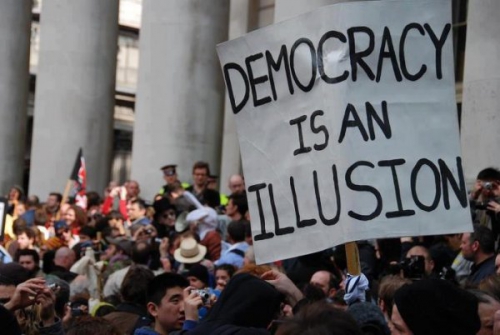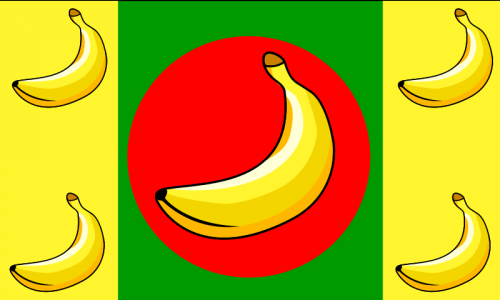Does the rise of nationalist populism in both Europe and North America, illustrated by politicians like Donald Trump, Nigel Farage, Marine Le Pen and others, mean that the Atlantic community now resembles Weimar Germany? Facile comparisons of contemporary Western populists to totalitarian, militarist dictators like Hitler and Mussolini are not only hyperbolic but also misleading. The greatest danger to liberal democracy on both sides of the Atlantic is not its consolidation under neo-fascist dictatorship, but rather its gradual decay into something like the oligarchic regimes that have long existed in many Latin American countries. Fascism? No. Banana republic? Maybe.
Across the political spectrum, there is growing recognition of the need for more widespread sharing of the gains from economic growth. In the United States, center-right “reformicons” propose new or expanded wage subsidies and child tax credits. On the center-left, the debate has changed from how to cut Social Security, the public pension on which most retirees depend, to how to expand it.
Many of these proposals would help mitigate economic exclusion as well as reduce economic inequality at the margins. But what about social and political exclusion? A citizen’s place in the social order is defined by more criteria than after-tax income plus government benefits. By themselves, mere economic reforms will not address the sense of powerless outsiders that real power is monopolized by the insiders.
“Corporatism” is a pejorative term nowadays, for left, right, and center. But it is important to recognize that the corporatist government-business-labor arrangements of the mid-20th century in Europe and the US did more than share the gains from growth while promoting labor peace. Thanks to membership in trade union federations or agrarian associations, many industrial workers and small farmers had a second way to influence public policy, in addition to voting. At the same time, in the conventional political realm, non-elite citizens had more influence because political parties were federations of local and regional parties, with ideas flowing up as well as down.
Today’s Western societies are more atomized than at any point since the industrial revolution began. Twentieth-century corporatist arrangements were destabilized by the information revolution and dismantled by centrist governments to remove obstacles to competitive markets. The gains in efficiency have been real in many sectors, but they have come at the price of the loss of agency for most workers. A similar disempowerment of citizens has followed the disintegration of membership-based political machines and the transformation of parties into mere labels that can be captured by activists or purchased by rich individuals or cliques of donors.
The result of these trends is something like Disraeli’s “two nations” within every advanced Western democracy — only the two nations are best described not as the rich and the poor but rather as insiders and outsiders.
Insider Nation on both sides of the Atlantic is extraordinarily homogeneous, in spite of its professed dedication to diversity. In societies in which the traditionally-defined white population is shrinking, Insider Nation is overwhelming white. Although meritocracy is the official creed of Insider Nation, its allegedly self-made men and women are almost always born into the wealthy or professional classes, seldom into working class or poor families. The new oligarchy is linked by education at a few institutions, like the Ivy League universities in the US, and increasingly by intermarriage.
Insider Nation is hostile to politics, as it has traditionally been practiced in modern democracies. The ideal of Insider Nation is nonpartisan technocracy, staffed by the best and brightest graduates of a few elite schools. It is assumed that domestic and foreign policy consist of a set of discrete problems, each of which has an optimal solution upon which rational, disinterested, nonpartisan individuals can agree. The style of Insider Nation is that of corporations, think tanks, consulting firms — soft-spoken, analytical, emotionless.
Voters are ignorant and dangerous, from the insider perspective, and legislatures are too much under the influence of the voters. The political project of Insider Nation is to remove decision-making from legislatures to non-legislative bodies — bureaucracies, courts, trans-national agencies, treaty arrangements — or, failing that, to nullify the will of the voters by persuading elected officials to support the nonpartisan elite consensus, whatever they may have said during the campaign.
The technocratic pose of the new pan-Western oligarchy is just that: a pose. The alleged solutions to public policy issues — great increases in the immigration of non-citizen, non-unionized workers with little leverage vis-à-vis firms, cuts in entitlement spending to pay for lower taxes on the rich — just happen to coincide with the narrow class interests of employers and the rich.

The pretense of meritocracy is undermined by nepotism. John Gray has written about the elite, coterie-based “Namierite” politics of contemporary Britain. In the United States, much of the billionaire donor class tried and failed to nominate a third member of the Bush family for the presidency, to run against the second member of the Clinton family to seek the White House in a generation.
Outsider Nation could not be more different from Insider Nation. Membership in political parties, churches, local community groups, charities, and clubs has declined in all Western nations. The social universe has shrunk to work, the family, and the virtual reality provided by television, radio, and the internet. For all their flaws, the old social institutions simultaneously empowered people while acculturating them to civility and teamwork. “Manners are small morals,” as the saying goes. But the mass media, which reward the rude and the shocking and the belligerent with celebrity, are acting as a de-civilizing influence. If Insider Nation is a nation of technocrats, Outsider Nation is a nation of trolls.
When the alienated, anomic members of Outsider Nation rally behind candidates like Jeremy Corbyn in Britain or Donald Trump in the U.S., the refined oligarchs of Insider Nation are flabbergasted. The tribunes of the outsiders have outlandish ideas . . . and, worse, they have no style.
But the rise of populist tribunes as a response to the increasing social and epistemic closure of Western elites was entirely to be expected. Now that access to political influence depends, not on decentralized grassroots party organizations or trade associations and unions, but on mobilized money or media celebrity, it is only natural that outsiders will turn to champions who are billionaires like Ross Perot, TV celebrities like Italy’s Beppe Grillo, or a combination of both, like billionaire and reality television star Donald Trump. Absent spokesmen like these, the disconnected majority would have little or no voice at all.
This kind of insider-outsider system, pitting a wealthy oligarchy against poor and angry outsiders, has existed for generations in many Latin American countries. It is also familiar in the American South, where populist tribunes like “Big Jim” Folsom battled for the white working class and small farmers against what he called “the Big Mules.” Mussolini and Hitler are not the precursors to today’s national populists. Think Huey Long or Hugo Chavez.
In such a social order, conventional left-right distinctions break down. The elite insiders often combine conservative economic views with progressive views on issues involving race and gender. The non-elite outsiders are often socially conservative, religious and even racist. At the same time, they may be conventionally left-wing in their hostility to banks and business and their support for a generous welfare state. Oligarchs tend to be civilian, while populists often have military backgrounds or military links, not because populists are necessarily militarists, but because in a class-stratified society the military may be one of the few avenues of upward mobility for the working class.
Is this the future of the West — never-ending clashes between North Atlantic versions of Juan Peron and the equivalent of the Buenos Aires Jockey Club? This is not as bad as the breakdown of the Weimar Republic in Germany followed by National Socialism. But a world of decaying democracies dominated by nepotistic, elite coteries, in which alienated mobs now and then use elections as an excuse to demonstrate inchoate rage, is dystopian enough.
If banana republicanism is to be avoided, reformers in America and Europe will have to do far more than buy off the population with a tax credit here and a subsidy there. Indeed, if a package of enlightened reforms is handed down from above by benevolent billionaires and the technocrats and politicians whom they subsidize, with little or no public participation or debate, the lack of voice and agency of most citizens will simply be underlined in the most humiliating way.
To save Western democracy from further decay, reformers will have to build rebuild old institutions or build new ones which can integrate ordinary citizens from the local to the national level, so that everyone can be an insider. That is a project for several generations, not several administrations. Success is far from certain. But the alternative is all but certain: a future, not of dictators and concentration camps, but of gated communities — and mobs led by demagogues at their gates. •
Feature image courtesy of Jeff Warren via Flickr (Creative Commons)





 del.icio.us
del.icio.us
 Digg
Digg
Les commentaires sont fermés.